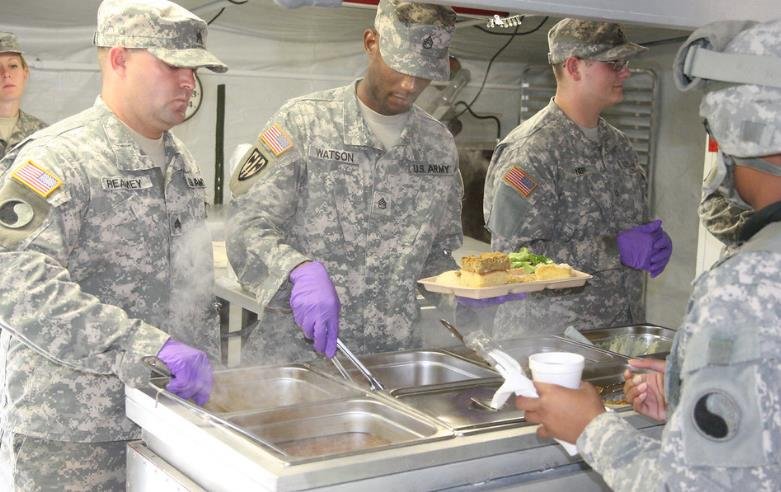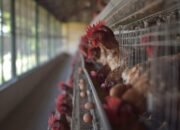A team of experts from the Army Food Program visited several warrior restaurants in Germany to learn what soldiers want and need from their food service. The team, composed of representatives from the Army Center of Excellence, Subsistence, U.S. Army Materiel Command, and U.S. Army Sustainment Command, conducted a site visit to Baumholder and Kaiserslautern on March 5-6. The team met with soldiers, food service workers, and local leaders to gather feedback and information on the food service ecosystem in the region.
The site visit was part of a larger Army-wide food program assessment that aims to evaluate and improve the food service delivery and quality across the Army installations. The assessment, which started in December 2023 and will end in March 2024, uses two teams to visit different locations and collect data from various sources, such as surveys, interviews, observations, and reports.

The purpose of the site visit to Germany was to assess the food service ecosystem in the U.S. Army Garrison Rheinland-Pfalz area of operations, which includes two warrior restaurants in Baumholder and two in Kaiserslautern. The team wanted to learn from the customers who frequent the warrior restaurants, as well as the personnel who work there, about their preferences, expectations, and satisfaction with the food service. The team also wanted to learn about the challenges and opportunities that the food service faces in the region, such as the availability of resources, the compliance with standards, and the coordination with partners.
The team will then use the information and feedback they gathered to provide recommendations and suggestions to the senior leadership on how to enhance and optimize the food service in the region, and in the Army as a whole.
The Highlights of the Site Visit
The site visit to Germany was a productive and informative experience for the team, as they were able to interact with a diverse and engaged group of stakeholders, and to observe the food service operations and facilities in the region. Some of the highlights of the site visit were:
- The team visited the Knight’s Lair Warrior Restaurant and the Castle Warrior Restaurant in Baumholder on March 5, and the Defender Café Warrior Restaurant at Rhine Ordnance Barracks and the Clock Tower Café Warrior Restaurant at Kleber Kaserne on March 6. The team toured the kitchens, dining areas, and storage rooms of each warrior restaurant, and checked the equipment, the inventory, and the sanitation. The team also sampled the food and beverages offered at each warrior restaurant, and evaluated the taste, the presentation, and the variety.
- The team met with soldiers who live in the barracks and are authorized meal cards, who are the primary target group of the food service. The team asked the soldiers about their food service habits, such as how often they eat at the warrior restaurants, what they like and dislike about the food service, and what they would like to see improved or changed. The team also handed out surveys to the soldiers, which they can fill out online, to provide more feedback and suggestions. The team also met with other customers, such as family members, civilians, and contractors, who also use the warrior restaurants, and asked them about their opinions and experiences.
- The team met with food service workers, such as cooks, servers, and managers, who work at the warrior restaurants, and asked them about their roles, responsibilities, and challenges. The team also met with local leaders, such as the Logistics Readiness Center Rheinland-Pfalz Supply and Services Division, the 405th Army Field Support Brigade’s Food Program Office, and the 16th Sustainment Brigade, who support and oversee the food service in the region, and asked them about their goals, plans, and issues.
The Implications of the Site Visit
The site visit to Germany was a valuable and beneficial opportunity for the team, as they were able to gain insights and perspectives from the people who are directly involved and affected by the food service in the region. The team was able to identify the strengths and weaknesses of the food service ecosystem in the region, and to understand the needs and wants of the soldiers and other customers.
The team will use the data and feedback they collected to prepare a report and a presentation, which they will share with the senior leadership, such as the Army Center of Excellence, Subsistence, U.S. Army Materiel Command, and U.S. Army Sustainment Command. The report and the presentation will include the findings, the analysis, and the recommendations of the team, based on their site visit to Germany, and to other locations.
The team hopes that their report and presentation will help the senior leadership to make informed and strategic decisions on how to improve and modernize the food service in the Army, and to ensure that the food service meets the expectations and the requirements of the soldiers and other customers.
















